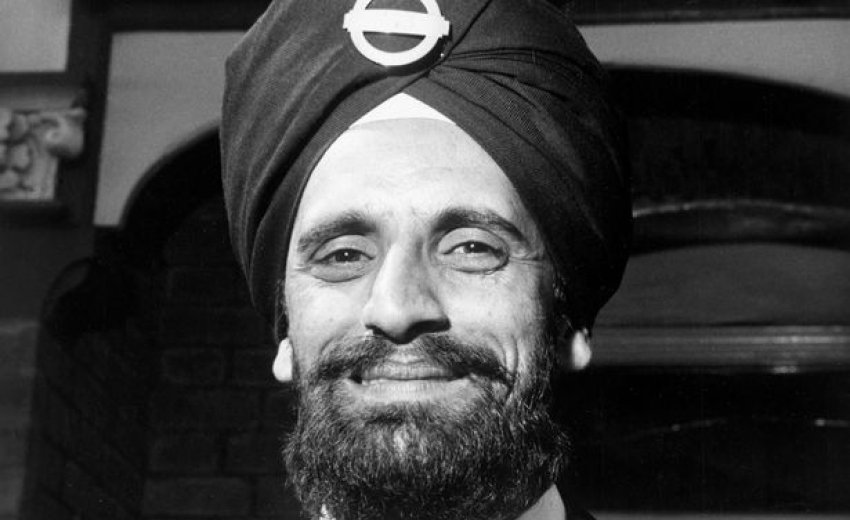Sardar Amar Singh showed up for work on time every day for a period of three weeks, but he was always sent home and recorded as absent.
Multiculturalism is one of the strongest attributes of London. It is estimated that one-third of those living in London were not born in the United Kingdom. While walking around the city, one can hear more than 200 languages. This multiculturalism has not only enriched the capital economy of London but also contributed significantly to its culture and gastronomy. It has been a major factor in elevating its status as one of the best cities. However, things haven’t been all rosy and easy for those who now call London their home.
In today’s rapidly evolving world, balancing one’s faith, belief system and cultural practices might seem easy. However, this is the result of the sacrifices and struggles of the heroes who fought many battles before us. Years back, one such hero was Amar Singh. He lived in Southhall and worked on the London Underground.
In 1962, Amar Singh, a Sikh man of Indian origin began working as a railway guard on Central line trains. He used to live on Hambrough Road, just off Southall Broadway. At that time, the Ealing town was beginning to be known as ‘Little India’.
Train guards used to open doors, police trains, and be available if a driver became ill or was unable to complete his journey. For two years, Amar Singh commuted to the Acton depot while sporting a clean-shaven look and flat-peaked cap. However, as years passed, he wanted to be in touch with his religion, Sikhism.
Questioning his Sikh identity
Gradually, Amar started following and adorning the Sikh identity. As per the Sikh religion, cutting hair and beard is forbidden. Also, males are encouraged to wear turbans, which are considered an incredibly powerful symbol of spirituality and devotion. Amar made the decision to let his hair and beard grow while working as a train guard. This was not a rarity in the swinging 1960s in London. However, when he decided to replace his guard's headgear with a turban, he was warned not to report to work.
Additionally, the administrators in charge of the transportation system suspended him without pay.
Singh shared his experience, saying that he wore a peaked cap for more than two years. He also cut his hair and shaved like an Englishman but could not go on as his conscience was tormenting him throughout. Therefore, he decided to start following the tenets of Sikhism again.
He said, “ When my hair looked like a Beatle's I put it in a turban. But at work, I was told this was not allowed.”
Amar Singh further shared that he was surprised at the religious discrimination that he faced at the London Underground. He also said that the organization was trying to shatter his willpower by not paying them. They weren’t firing him, and neither were they paying them. At that time, he lost £30 in wages. When asked about their discriminatory behavior against Amar Singh, London Transport said that the case was presented wrongly. They further added, “ We are not interested in religion or colour. Singh has worn his uniform for two years. We simply told him he could not wear a turban on duty.”
Standing tall and winning the battle
Sikh communities throughout England conducted prayer gatherings in support of Amar getting his job back. At the time, the story appeared in both local and national publications, raising the issue in more places than ever before.
However ,just days later, Amar Singh’s bosses decided to go along with his request and told him that he may continue to wear the black turban provided that it had the London Transport badge. It was like winning a battle against discrimination. At the time, the spokesperson of London Transport said they can’t comment if other Sikhs would be able to wear a turban to work. They considered Amar Singh as a special case.
Today the scenario has changed. Bus drivers, Tube employees, and other network employees are permitted to wear turbans, hijabs, beards, crosses, and any other religious symbols while working to keep the capital running.
When many had to undergo cultural and religious prejudice, Amar Singh stood tall and raised his voice against discrimination. While only a few remember his name, the unsung Sikh hero made enormous sacrifices for religious freedom in the United Kingdom, especially in London.

